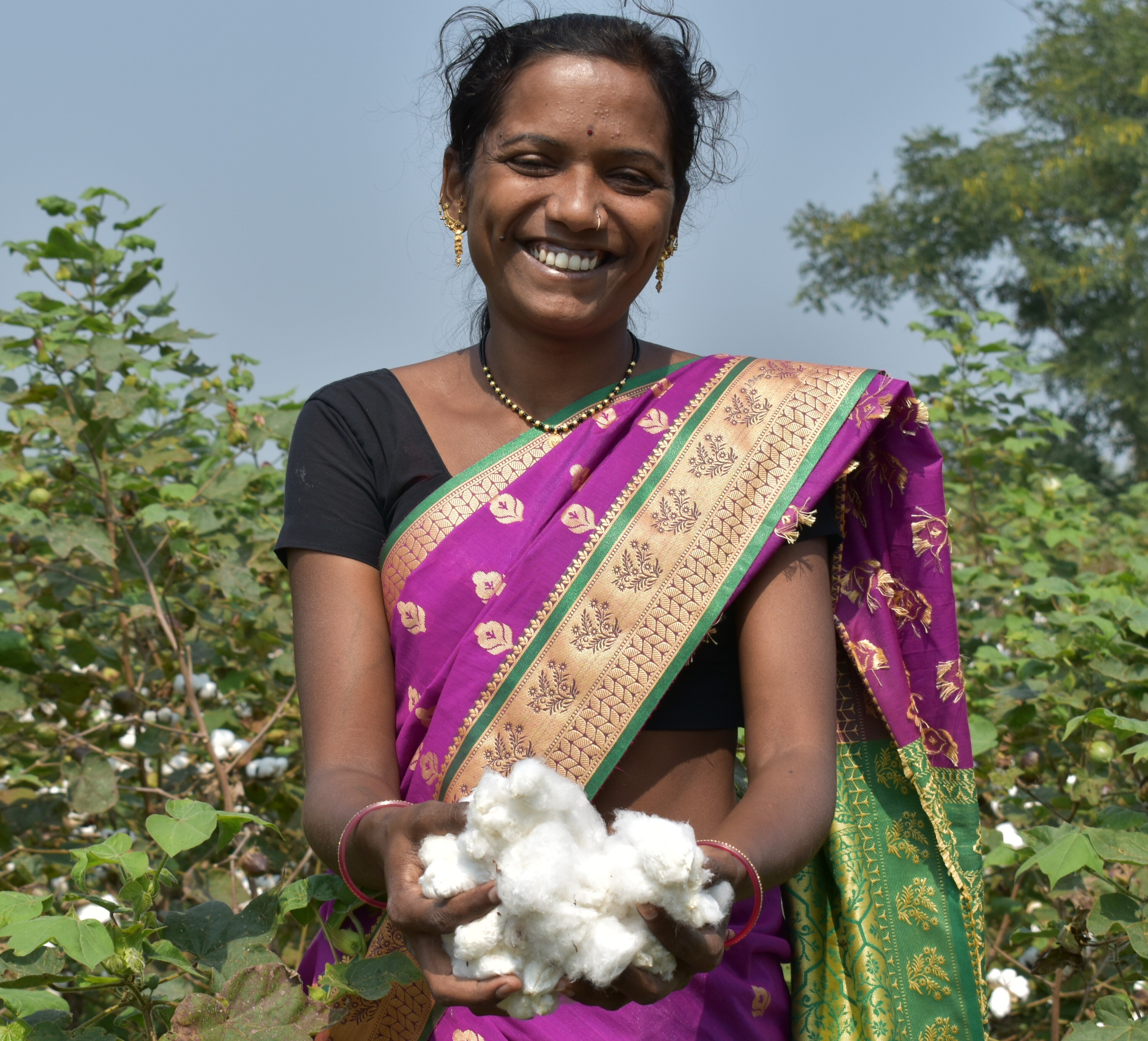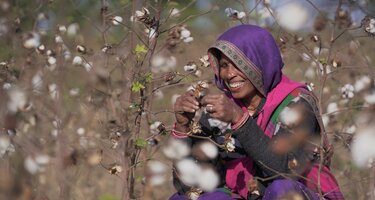Sustainability and Value Added in Agricultural Supply Chains – Commodity Hub India
The commodity Hub India operates along the supply chains of cotton, tea, coffee and spices, with the goal of increasing sustainability in these sectors. This is achieved by strengthening the capacities of producers, promoting local value addition, and supporting the adoption of climate-resilient and sustainable farming practices.
The project at glance
Project Goals
With the commodity Hub India, AgriChains aims to increase sustainability in selected supply chains by enhancing capacities of farmers and producers, facilitating local value addition, promoting sustainable climate-resilient farming methods, and connecting smallholders to domestic and global markets via a ‘shelf-to-field’ approach.
This is undertaken in close cooperation with the government, global sustainability standards organisations, international and Indian industry partners and research and civil society organisations.
Project Implementation

Over 46% of India’s 1.4 billion population works in agriculture and allied sectors, undertaking farming activities at the beginning of global supply chains. Cotton, tea, spices, and coffee are among the country’s key commercial crops contributing to farmers income and exports. India has the largest area under cotton cultivation in the world, is the largest exporter of spices, and the second-largest producer of tea.
Despite this significant agricultural output, smallholder farmers continue to face challenges farming like low productivity, quality, price and income, crop losses due to climate change, and limited access to knowledge on good/sustainable farming practices and direct market linkage with the industry. Only a small portion of the production area meets internationally recognised sustainability and quality standards.
The commodity hub India works across four fields of action to address these issues:
- Sustainable production – Smallholder farmers and their organisations such as Farmer Producer Organisations (FPOs), Women’s Self-Help Groups (SHGs) adopt more sustainable farming practices aligned with internationally recognised sustainability standards.
- Local value addition – local processing capacities are strengthened, innovations piloted, and skills developed.
- Sustainable supply chains – Working with key supply chain actors and stakeholders, sustainable supply chains are established “from shelf to field,” linking consumers directly with producers.
- Global knowledge transfer – Programme partners exchange good agricultural practices and innovations across the selected supply chains.
Project Partners
Political partners
- Ministry of Textiles
- Ministry of Agriculture and Farmers’ Welfare
- Ministry of Commerce and Industry
Govt. implementing partners:
- Cotton Corporation of India
- Tea Board
- Spices Board
National and global brands
- Brands Fashion, Welspun India Private Limited, Indo Count Industries, Remei India (BioRe), BRANDS Fashion, C&A GmbH, Esprit, Formesse, HAKRO GmbH, H&M Group, s.Oliver Group, and Tchibo GmbH and others
- AIO Impex Pvt. Ltd. (Ancient India Organics), Yogi Tea, AVT McCormick, Jing Tea, Lavazza, Ostfriesische Tee Gesellschaft (OTG), Taylor's of Harrogate, Teekanne GmbH & Co. KG (Sustainable tea and spices)
- CCL Products India Limited (Continental Coffee), Tata Consumer Products Limited (Sustainable coffee)
Sustainability standards
- Fairtrade
- Better Cotton
- Organic
- Rainforest Alliance
Initiatives, Multilaterals, MDOs, CSOs, Academia
- Organic Cotton Accelerator (OCA)
- The Water Resources Group 2030 (WRG 2030) of the World Bank
- UN Women
- Solidaridad Regional Expertise Centre India
- ITA Augsburg, RWTH Aachen, Hochschule Niederrhein, Sardar Vallabhbhai Patel International school of Textiles and Management (SVPISTM)
- Ethical Tea Partnership
What has been achieved so far?

The project in India has benefitted over 270,000 cotton farmers and workers along the textile supply chain, and over 176,000 tea & spice growers and workers. Additionally, it has a reach of about 190,000 as a part of its Covid-19 response measures, and another 100,000+ farmers were reached as a part of its global crisis response initiatives.
Outlook on future prospects
- Promoting best management practices for cotton farmers with a focus on best management practices for Kasturi Cotton from field to ginning and skill development for textile workers after the ginning process, aligned with Government of India priorities.
- Supporting market development and exploring export potential for Kasturi Cotton, including B2C communication on traceability, point-of-sale claims, and premium price propositions for farmers.
- Scaling capacity building on harvest and post-harvest management through pilots and ToTs, with focus on trash minimisation, quality-wise segregation, moisture management, and contamination reduction.
- Launching Phase 2: “Field to Fanshop” in partnership with 9 German football clubs and BRANDS Fashion, linking Indian farmers to major German supply chains.
- Enhancing farm productivity through precision farming, carbon monetisation, and improved water-use efficiency in collaboration with business partners.
- Sensitisation on impacts of low controls on sustainable supply chains
- Partnering with industry and associations to promote women’s health, wellness, and safe working conditions, and to conduct sensitisation workshops on sustainability implications.
